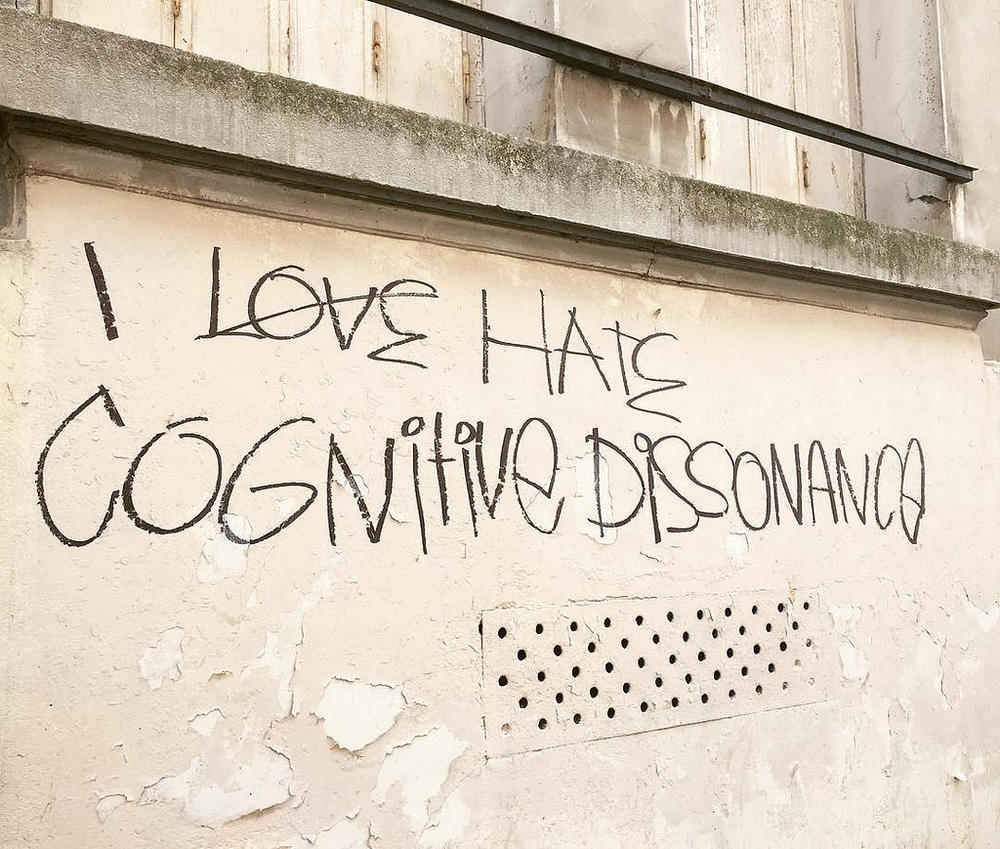Section Branding
Header Content
Break It Down: Cognitive Dissonance
Primary Content
Sometimes people won’t – or don’t – change their minds, even when they’re presented with evidence showing their views aren’t based in fact. One reason why is a psychological term called cognitive dissonance.
You may hear more and more about cognitive dissonance as we get closer to the election. It's a term used to explain politics all the time. But it's something that not a lot of people really understand.
Celeste Headlee and Adam Ragusea "Break It Down” with help from University of Georgia associate professor of political science Audrey Haynes and Roxanne Donovan, a professor of psychology and interdisciplinary studies at Kennesaw State University.




